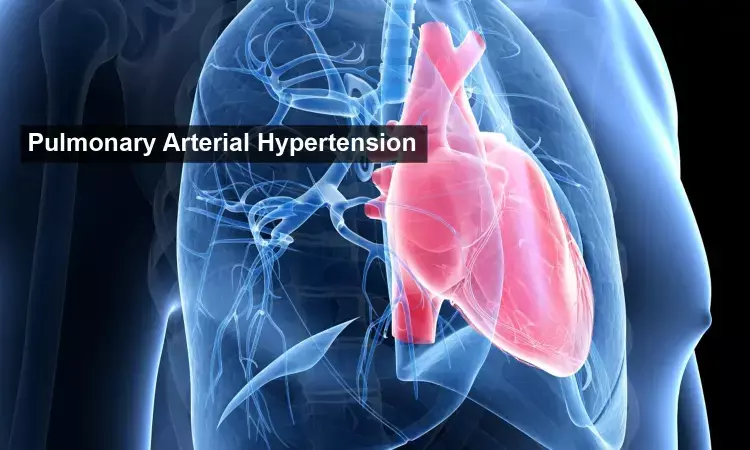- Home
- Medical news & Guidelines
- Anesthesiology
- Cardiology and CTVS
- Critical Care
- Dentistry
- Dermatology
- Diabetes and Endocrinology
- ENT
- Gastroenterology
- Medicine
- Nephrology
- Neurology
- Obstretics-Gynaecology
- Oncology
- Ophthalmology
- Orthopaedics
- Pediatrics-Neonatology
- Psychiatry
- Pulmonology
- Radiology
- Surgery
- Urology
- Laboratory Medicine
- Diet
- Nursing
- Paramedical
- Physiotherapy
- Health news
- Fact Check
- Bone Health Fact Check
- Brain Health Fact Check
- Cancer Related Fact Check
- Child Care Fact Check
- Dental and oral health fact check
- Diabetes and metabolic health fact check
- Diet and Nutrition Fact Check
- Eye and ENT Care Fact Check
- Fitness fact check
- Gut health fact check
- Heart health fact check
- Kidney health fact check
- Medical education fact check
- Men's health fact check
- Respiratory fact check
- Skin and hair care fact check
- Vaccine and Immunization fact check
- Women's health fact check
- AYUSH
- State News
- Andaman and Nicobar Islands
- Andhra Pradesh
- Arunachal Pradesh
- Assam
- Bihar
- Chandigarh
- Chattisgarh
- Dadra and Nagar Haveli
- Daman and Diu
- Delhi
- Goa
- Gujarat
- Haryana
- Himachal Pradesh
- Jammu & Kashmir
- Jharkhand
- Karnataka
- Kerala
- Ladakh
- Lakshadweep
- Madhya Pradesh
- Maharashtra
- Manipur
- Meghalaya
- Mizoram
- Nagaland
- Odisha
- Puducherry
- Punjab
- Rajasthan
- Sikkim
- Tamil Nadu
- Telangana
- Tripura
- Uttar Pradesh
- Uttrakhand
- West Bengal
- Medical Education
- Industry
Study details HIV-associated pulmonary arterial hypertension and its impact on HIV management

USA: At any stage of human immunodeficiency virus (HIV) infection, HIV-associated pulmonary arterial hypertension (PAH) can occur, independent of CD4 count and viral load. It is crucial to recognize and treat HIV-associated pulmonary arterial hypertension because of the associated mortality and morbidity.
The introduction of antiretroviral therapies (ART) has improved survival and changed the focus of treatment management from immunodeficiency-related opportunistic infections to chronic cardiovascular complications, including HIV-PAH. The 2018 6th World Symposium of Pulmonary Hypertension recommended a revised definition of PAH that might result in a greater number of HIV-PAH patients; however, the implication of this change is yet unclear. According to the recommendation, it is now standard of care for echocardiographic screening of HIV-infected patients with one of the following risk factors: female sex, intravenous drug use/cocaine or methamphetamine use, hepatitis C virus infection, origin from a high-prevalence country, known as Nef or Tat HIV proteins, and African American patients in the United States, independent of symptoms.
The gold standard for diagnosis of pulmonary hypertension and measurement of hemodynamic values for a right heart catheterization, but routine vasodilator testing is not recommended in patients with suspected HIV-PAH since vasodilator responsiveness is rarely found in patients with HIV-PAH.
"Because of this and the potential for significant side effects, such as hypotension and drug-drug interactions with antiretroviral therapy such as protease inhibitors, calcium channel blockers should be avoided in this population," Stephanie M. Hon and colleagues wrote in their study published in the journal Cardiology Clinics. "The cornerstone of treatment for compliant HIV patients is antiretroviral therapy independent of CD4 count or viral load, however, the impact of ART on HIV-PAH hemodynamics and outcomes remains controversial as the prevalence of HIV-PAH has remained unchanged after ART became a routine treatment for patients with HIV."
Patients with HIV-PAH respond well to PAH-specific treatments including endothelin receptor antagonists, nitric oxide-cyclic guanosine monophosphate enhancers, and prostacyclin analogs, they note.
"Reports have shown normalization of hemodynamics, rare in other subgroups of PAH. It is however important to be aware of drug-drug interactions between these medications and HIV medications," they concluded.
Reference:
The study titled, "Pulmonary Arterial Hypertension in Patients Infected with the Human Immunodeficiency Virus," was published in the journal Cardiology Clinics.
Dr Kamal Kant Kohli-MBBS, DTCD- a chest specialist with more than 30 years of practice and a flair for writing clinical articles, Dr Kamal Kant Kohli joined Medical Dialogues as a Chief Editor of Medical News. Besides writing articles, as an editor, he proofreads and verifies all the medical content published on Medical Dialogues including those coming from journals, studies,medical conferences,guidelines etc. Email: drkohli@medicaldialogues.in. Contact no. 011-43720751


